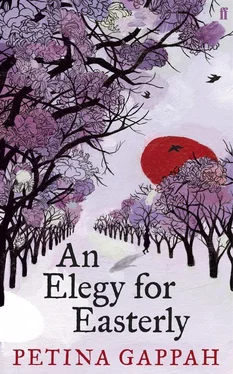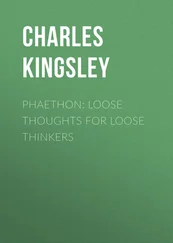Petina Gappah - An Elegy for Easterly
Здесь есть возможность читать онлайн «Petina Gappah - An Elegy for Easterly» весь текст электронной книги совершенно бесплатно (целиком полную версию без сокращений). В некоторых случаях можно слушать аудио, скачать через торрент в формате fb2 и присутствует краткое содержание. Год выпуска: 2009, Издательство: Faber & Faber, Жанр: Современная проза, на английском языке. Описание произведения, (предисловие) а так же отзывы посетителей доступны на портале библиотеки ЛибКат.
- Название:An Elegy for Easterly
- Автор:
- Издательство:Faber & Faber
- Жанр:
- Год:2009
- ISBN:нет данных
- Рейтинг книги:4 / 5. Голосов: 1
-
Избранное:Добавить в избранное
- Отзывы:
-
Ваша оценка:
- 80
- 1
- 2
- 3
- 4
- 5
An Elegy for Easterly: краткое содержание, описание и аннотация
Предлагаем к чтению аннотацию, описание, краткое содержание или предисловие (зависит от того, что написал сам автор книги «An Elegy for Easterly»). Если вы не нашли необходимую информацию о книге — напишите в комментариях, мы постараемся отыскать её.
An Elegy for Easterly — читать онлайн бесплатно полную книгу (весь текст) целиком
Ниже представлен текст книги, разбитый по страницам. Система сохранения места последней прочитанной страницы, позволяет с удобством читать онлайн бесплатно книгу «An Elegy for Easterly», без необходимости каждый раз заново искать на чём Вы остановились. Поставьте закладку, и сможете в любой момент перейти на страницу, на которой закончили чтение.
Интервал:
Закладка:
They bring Emily to Dr Chikara, the Dean of Students on one side, the warden of Swinton Hostel on the other. Dr Chikara is not who she expected. His office is an empty space with nothing on the walls. There are no books by Freud and Jung. There is no couch in sight. He does not talk about the id or the ego. Instead, from behind his government-issue desk, he directs her to a government-issue chair.
He smokes Kingsgate cigarettes, one after the other.
He writes down everything she says.
‘Canst thou minister to a mind diseased?’ she asks him. ‘Pluck from the memory a rooted sorrow?’
He writes this down.
‘May I have a cigarette,’ she says, without a question mark.
‘Do you smoke?’ he asks, with a question mark.
‘I do now,’ she says as she lights one of his cigarettes. She coughs out smoke through teary eyes.
He writes that down too.
‘I am sending you to the Annexe,’ he says, ‘the mental wing at Parirenyatwa Hospital.’
The words mental and hospital combine to produce a loud clanging in her mind.
‘I am not mad,’ she says.
‘No, of course you are not mad,’ he says. ‘Madness has nothing to do with it. You only need rest, all you need is rest.’
Emily is pliant, obedient, she needs rest. The warden calls her a taxi, to be paid for by the university. ‘I am visiting a friend,’ she tells the driver, even though he has not asked. Inside the Annexe, the door shuts behind her. A man in a striped robe walks the slow walk that puts her in mind of the undead of film and television. In his face is vacant possession.
‘Do you have Parade , sister?’ he slurs.
She turns towards the door but there is no handle on the inside.
‘I am not supposed to be here,’ she says, ‘let me out, let me out.’
‘Sister, may I have Parade ?’ the man says, and touches her face. The man attracts others, and two women shuffle towards her, with faces as empty as his. Like a persistent interloper, the rhyme from Stephen King’s Tommyknockers reverberates in her mind. Late last night and the night before, Tommyknockers, Tommyknockers, knocking at the door . The door won’t open, and she bangs on it to escape the shuffling figures in their striped robes. A nurse comes to her, face clouded with concern.
‘Is it not that you are the girl from the university?’ the nurse asks in Shona. ‘Is it not that Dr Chikara sent you here?’
‘No, no,’ Emily says in English, ‘let me out.’
I want to go out, don’t know if I can .
‘Are you not the one we are expecting?’ the nurse asks again.
‘I am lost,’ Emily says, ‘so sorry, so lost, I should not be here.’
I am so afraid of the Tommyknocker man .
The door opens and she stumbles out.

In her room on P corridor at Swinton, she announces to no one in particular: ‘I am going to keep a journal. I am going to write down everything that happens to me. Today I ate my banana,’ she says, ‘so I will write that down.’
‘I ate my banana,’ she writes.
Only it comes out ‘I hate my banana’, and, seeing this, she laughs. Then she sees that this is not so funny, this is, in fact, a sign that everything is against her, she can’t even trust her own pen, her own hand, her own thoughts, her very actions betray her, everything is against her, everything is wrong, so wrong, nothing will ever be right again.
It is as she cries that the Dean of Students and the warden enter her room to take her back to the Annexe. ‘I know my rights,’ she says through her tears. ‘I am a law student.’
They brush away her law studies like an inconvenient fly.
‘Your father said we can section you,’ they say.
The force of her father’s will moves across the country from Bulawayo to Harare. It takes the route that Emily herself takes to get to university each term, past Gweru, Kadoma, Chegutu. The force travels along the Bulawayo Road and propels her from her bed to pack a small bag. Pens and notebook, her new diary. Three changes of underwear, three T-shirts, two pairs of jeans. One book: The Origin of the Family, Private Property and the State .

Her clothes are not wanted here, they remain in her bag. She wears a striped gown with the many-wash-faded letters ANNEXE ANNEXE ANNEXE all over it. She is branded across her breast, on her right arm, above her knees, across her back. She is small, Emily. The gowns are supposed to be one-size-fits-all but hers is so big that she feels like she is in a tent. In the window, she catches her reflection. She cannot see herself. MockingNurseMatilda takes down her particulars. Name, age, race, religion, height, weight. She asks Emily what tribe she belongs to.
‘This is what slows progress in this country,’ Emily screams. ‘The notion of tribe is a patronising Western construction,’ she adds when they have restrained her. ‘The Goths, Vandals and Visigoths, those were tribes, they talk about Serbian nationalism, but African tribalism. I do not have a tribe, I belong to the nation.’
They force her onto the bed.
‘I am a student,’ she weeps. ‘A university student.’
‘Hedwig is a Catholic Sister, Ezekiel is an army sergeant, Sonia there manages a hotel,’ MockingNurseMatilda says. ‘Welcome to the Annexe, my dear, we welcome students too.’
Emily reads aloud from the Origin of the Family . A wave of gratitude washes over her. These men, Marx and Engels, Karl and Friedrich, dead and white, they get it, they really, really get it. ‘In the first place, sexual love assumes that the person loved returns the love; to this extent the woman is on an equal footing with the man. Secondly, our sexual love has a degree of intensity and duration which makes both lovers feel that non-possession and separation are a great, if not the greatest, calamity; to possess one another, they risk high stakes, even life itself.’
She cries herself to sleep. She wakes to find a Coloured girl staring at her and smiling as she plays with the beads at the ends of the braids on Emily’s hair. ‘Feel my baby,’ the Coloured girl says.
Her name is Estelle, and she is a star rising high above the reaches of all that is ordinary and elemental. Nothing can touch her, and nothing does.
‘Feel my baby,’ she says again, eyes closed. She places Emily’s hand on her stomach, chopping-board flat. ‘He will be born tomorrow.’
‘Ralph.’ Estelle says the name like she is tasting its sound.
‘Ralph,’ she repeats.
‘That is what I’ll call him, Ralph, like the Karate Kid.’
Together Emily and Estelle look out onto Second Street Extension where up and down goes the little green bus.

In the Annexe, she finds that she is not the only one who is not mad.
‘I am not mad,’ says Ezekiel.
‘And I am not mad,’ says Estelle.
‘Why do you look at me as though I am mad?’ asks Hedwig and hits Ezekiel on the head. No one is mad except the nurses with their faces out of focus, they are gone and there they are again, with their large ears and large hands that grab and say she needs rest. They give her three small pills, one orange, one square and white, one round and white. She is happy that it is NiceNurseLindiwe and not MockingNurseMatilda who helps her to a bed. There is something Emily has to tell her, something important, terribly, desperately important. It is the most important thing she has ever said to anyone. She clutches NiceNurseLindiwe’s arm and looks into her eyes. ‘Beware the Jabberwock, my son,’ she says. ‘The jaws that bite, the claws that catch. Beware the Jubjub bird, and shun the frumious Bandersnatch.’
Читать дальшеИнтервал:
Закладка:
Похожие книги на «An Elegy for Easterly»
Представляем Вашему вниманию похожие книги на «An Elegy for Easterly» списком для выбора. Мы отобрали схожую по названию и смыслу литературу в надежде предоставить читателям больше вариантов отыскать новые, интересные, ещё непрочитанные произведения.
Обсуждение, отзывы о книге «An Elegy for Easterly» и просто собственные мнения читателей. Оставьте ваши комментарии, напишите, что Вы думаете о произведении, его смысле или главных героях. Укажите что конкретно понравилось, а что нет, и почему Вы так считаете.












